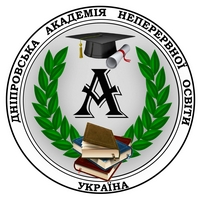DEVELOPMENT OF CIVIL SERVANTS’ COMPETENCIES IN THE FIELD OF INTERNAL SECURITY UNDER MARTIAL LAW
Abstract
The article provides a comprehensive analysis of domestic and foreign scientific approaches, concepts and practices aimed at the formation and development of professional competencies of civil servants in the context of ensuring the internal security of society. Particular attention is paid to the role of public service in conditions of martial law and hybrid threats, which put forward new requirements for the training of public administration personnel. The concept of «competence» is substantiated in an interdisciplinary dimension, as well as in connection with the functional responsibilities of civil servants in protecting national interests, implementing security strategies and ensuring the stability of public authorities. The content of the leading concepts of the issue of internal security is revealed, in particular in conditions of the legal regime of martial law, with an emphasis on interdepartmental coordination, crisis management, anti-crisis communication and interaction with the public. The key elements of the communication process in the public administration system during emergencies and crisis challenges that require prompt decision-making, information transparency and maintaining trust in the authorities are identified. The structural and functional components of the internal security system are analyzed, taking into account the transformations taking place in the state apparatus in the conditions of full-scale armed aggression of the Russian Federation against Ukraine. It is substantiated that the development of professional competence of civil servants in the field of internal security is of key importance for supporting the legitimacy of state institutions, effective response to security challenges, strengthening democratic statehood and protecting the territorial integrity of Ukraine. The author’s model of the development of civil servants’ competences is presented, which takes into account the specifics of the modern security environment, state policy priorities, the needs of society and the challenges associated with military operations. The model involves the integration of theoretical, practical and emotional-ethical training aimed at increasing the ability of civil servants to act in conditions of uncertainty, risk and increased responsibility.
References
2. Про національну безпеку України: Закон України від 21.06.2018 № 2469-VIII. URL: https://zakon.rada.gov.ua/laws/show/2469-19 (дата звернення 02 травня 2025).
3. Авер'янов В.Б. Реформування українського адміністративного права: черговий етап. Право України. 2020. № 7. С. 93-99.
4. Бакуменко В.Д. Формування державно-управлінських рішень: проблеми теорії, методології, практики: монографія. Київ: НАДУ, 2019. 328 с.
5. Нижник Н.Р., Олуйко В.М. Державне управління в Україні: централізація і децентралізація: монографія. Київ: НАДУ, 2018. 448 с.
6. Пилипчук В.Г. Система забезпечення національної безпеки України: актуальні питання. Стратегічна панорама. 2021. № 1. С. 17-25.
7. Christensen T., Lægreid P. The Whole-of-Government Approach to Public Sector Reform. Public Administration Review. 2021. Vol. 81(6). P. 1057-1064.
8. Painter M. Public Administration Reform: Moving from Compliance to Performance. International Review of Administrative Sciences. 2020. Vol. 86(2). P. 207-224.
9. Стратегія національної безпеки України: Указ Президента України від 14.09.2020 № 392/2020. URL: https://www.president.gov.ua/documents/3922020-35037 (дата звернення 02 травня 2025).
10. Деякі питання реформування державного управління України: Розпорядження Кабінету Міністрів України від 21.07.2021 № 831-р. URL: https://zakon.rada.gov.ua/laws/show/831-2021-р (дата звернення 02 травня 2025).

 ISSN
ISSN  ISSN
ISSN 

